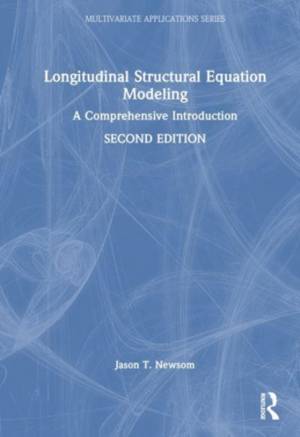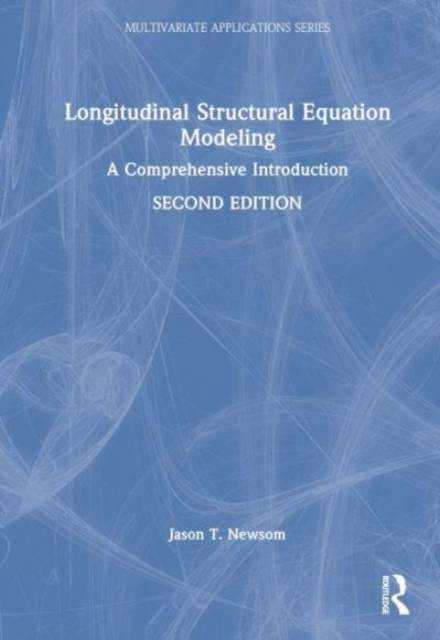
- Retrait gratuit dans votre magasin Club
- 7.000.000 titres dans notre catalogue
- Payer en toute sécurité
- Toujours un magasin près de chez vous
- Retrait gratuit dans votre magasin Club
- 7.000.0000 titres dans notre catalogue
- Payer en toute sécurité
- Toujours un magasin près de chez vous
Description
Longitudinal Structural Equation Modeling is a comprehensive resource that reviews structural equation modeling (SEM) strategies for longitudinal data to help readers determine which modeling options are available for which hypotheses.
This accessibly written book explores a range of models, from basic to sophisticated, including the statistical and conceptual underpinnings that are the building blocks of the analyses. By exploring connections between models, it demonstrates how SEM is related to other longitudinal data techniques and shows when to choose one analysis over another. Newsom emphasizes concepts and practical guidance for applied research rather than focusing on mathematical proofs, and new terms are highlighted and defined in the glossary. Figures are included for every model along with detailed discussions of model specification and implementation issues and each chapter also includes examples of each model type, descriptions of model extensions, comment sections that provide practical guidance, and recommended readings.
Expanded with new and updated material, this edition includes many recent developments, a new chapter on growth mixture modeling, and new examples. Ideal for graduate courses on longitudinal (data) analysis, advanced SEM, longitudinal SEM, and/or advanced data (quantitative) analysis taught in the behavioral, social, and health sciences, this new edition will continue to appeal to researchers in these fields.
Spécifications
Parties prenantes
- Auteur(s) :
- Editeur:
Contenu
- Nombre de pages :
- 502
- Langue:
- Anglais
- Collection :
Caractéristiques
- EAN:
- 9781032202839
- Date de parution :
- 31-10-23
- Format:
- Livre relié
- Format numérique:
- Genaaid
- Dimensions :
- 178 mm x 254 mm
- Poids :
- 1115 g

Les avis
Nous publions uniquement les avis qui respectent les conditions requises. Consultez nos conditions pour les avis.






